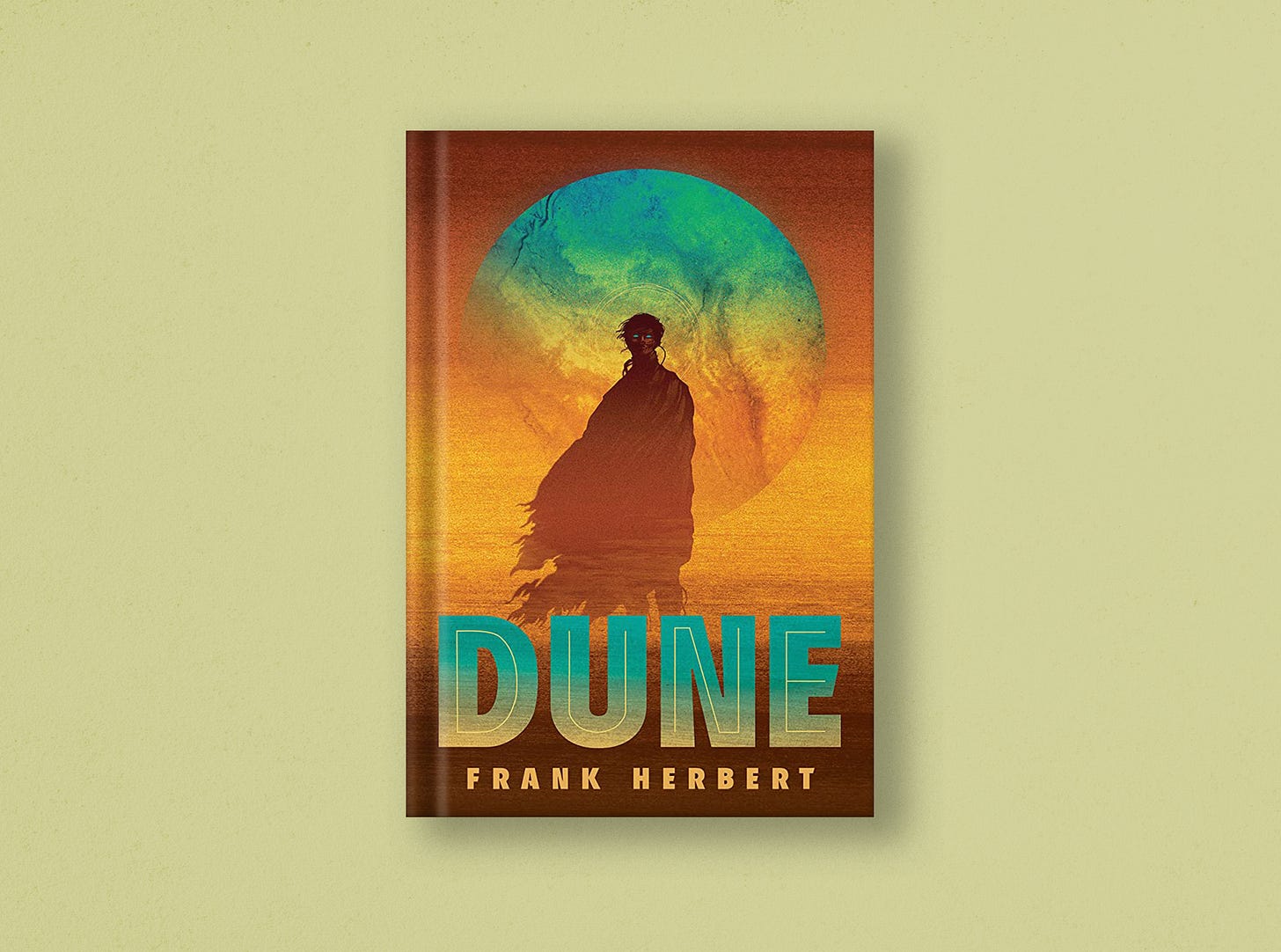Dune
Written by Frank Herbert.
🚨 Warning Possible Spoilers Ahead
⛰️ What is it About?
Frank Herbert's iconic novel, "Dune," weaves the saga of young Paul Atreides. Heir to a noble family, Paul yearns for a life of significance beyond the sand-swept world of Arrakis, the barren planet his family is entrusted with. His burning desire is met with ceaseless obstacles as his path is fraught with political intrigue, betrayal, and sandworms - the otherworldly beasts that make Arrakis their home.
Paul's quest is quickly threatened by the greed and corruption of power-hungry aristocrats who see Arrakis, known for its prized spice melange, as their free ride to universal domination. Despite the high stakes, Paul's journey is aided by various sources, from his mother's supernatural Bene Gesserit training to the mysterious Fremen, natives to the planet.
In the throes of struggle, Paul's life is forever changed. He evolves from a naive young boy to someone with the potential to fulfill an ancient prophecy of messianic significance. His transformation is marked by deep introspection, awakening powers and a profound understanding of the fragile balance of power governing Arrakis.
💭 My Thoughts
I first plunged into the world of Dune during the summer of 2021, as part of my attempt to get a jump over the oncoming hype-wave before the feature film’s fall release. Intrigued by the book's reputation - from my roommate's tales of incredible adventures to his brother's passionate advocacy of it being his all-time favourite book, I anticipated a thrilling journey.
Contrary to these expectations though, I found myself gradually wading through the book over several months, my pace reflecting a disconnection I felt with the narrative. Despite the compelling premise and a burning desire to finish the novel before its cinematic release, I found Herbert's writing style surprisingly uninspiring.
There's no denying the richness of the story - Arrakis' harsh desert expanse, the archetypal hero's journey with just enough unique spins to keep it interesting and the deep exploration of themes such as power, prophecy, and free will. I have always stood up for fiction in the face of those who discount it’s utility. I believe that fiction, at its best, simplifies life’ complexities and provides profound insights into our often grey-zoned reality. Dune should have, in theory, catered to this belief.
Unfortunately, however, I found my engagement with Dune akin to being marooned in its own desert landscape. The narrative's subtle writing often left me lost in its intricate maze, while the constant shifting of perspectives added to my disorientation. This isn't to say that I'm averse to complex literature, quite the opposite. I generally enjoy “boring” classics like Dostoevsky or Harper Lee. However, there was something about this book that I found particularly monotonous.
It's worth acknowledging Herbert's craftsmanship in building an elaborate universe and a captivating story arc - a feat that has garnered him a dedicated fanbase worldwide. However, my personal journey through Dune was mark with more disenchantment than intrigue. In the sea of ardent Dune enthusiasts, it seems I am left standing ashore.

